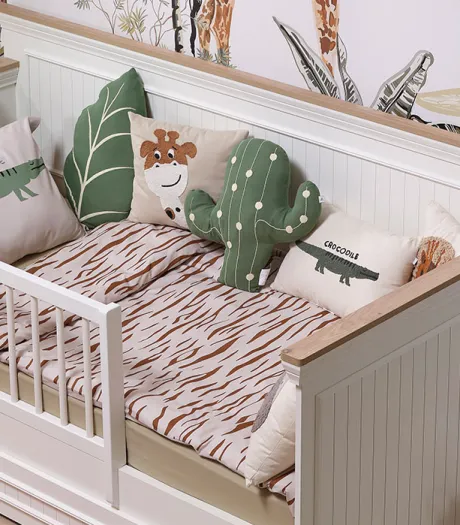
Every individual deserves to rest in a quiet and peaceful environment after a busy day. However, sounds coming from outside or noises inside the house can disrupt this peace. This is where bedroom soundproofing comes into play. So what is soundproofing? Soundproofing is the application of preventing or reducing the transmission of unwanted sounds from one environment to another. This process is carried out using various materials and techniques to prevent the spread of sound. The aim is to provide a quieter and more comfortable atmosphere in living spaces or working environments. Soundproofing in the bedroom is vital for a quality sleep. Blocking the sounds coming from outside and isolating the sounds inside the house are the basic steps to creating a peaceful space. Good soundproofing not only prevents disturbing sounds, but also protects your privacy. So how is soundproofing done in the bedroom? In this article, we will cover everything you need to know about home soundproofing.

Soundproofing Solutions for Bedrooms
There are various methods you can use to soundproof your bedroom. These methods may vary depending on the structure of the room and the source of the sound. Here are some effective soundproofing solutions for the bedroom:
Wall Insulation
Wall soundproofing is one of the most critical points of soundproofing in the bedroom. Walls are the areas where sound spreads the most, and when they are not well insulated, sounds from outside can easily seep in. How is wall soundproofing done? The first step is to use special soundproofing panels. These panels are placed on the walls and prevent the passage of sound. In addition, insulation materials placed inside the walls are also very effective.

Floor Insulation
Floor insulation is an often overlooked but extremely important step. Floor insulation prevents vibration and footsteps from passing to the lower floors. Sound insulation can be provided on the floor by using carpets or special sound insulation carpets. In addition, insulation materials placed under the floor also provide effective results.
Ceiling Insulation
Ceiling insulation is necessary to prevent sounds coming from the upper floors in particular. Ceiling sound insulation creates a quieter environment by preventing the sound from passing from top to bottom. Acoustic panels can be used for ceiling insulation. These panels are placed on the ceiling surface and provide sound insulation.

Window Soundproofing
Windows play an important role in preventing outside noise from entering the interior. Window soundproofing can be achieved by using double glazing or soundproof curtains. You can also prevent sound transmission by filling the gaps around the window frames.
Strengthen Your Doors
Doors are one of the areas where sound passes most easily. One answer to the question of what can be done for soundproofing is to strengthen your doors. You can minimize the sounds coming from doors by using soundproof doors or door seals. With this simple but effective method, you can maintain the silence inside your room.
In conclusion, soundproofing is the key to creating a quality living space. Thanks to room soundproofing solutions, you can make your bedroom a more peaceful and comfortable place. Remember, good soundproofing not only provides a quiet environment, but also increases the comfort of your home.
You May Be Interested in → How Should a Children's Room Be for a Quality Sleep?








































